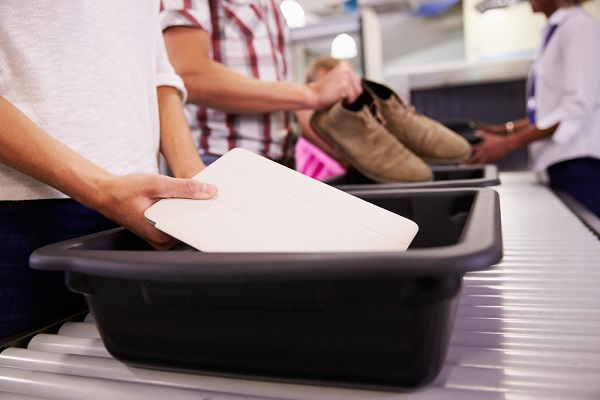Airline passengers are urged to remain compliant with existing airport security regulations amidst evolving technology. Adapting to current guidelines ensures a smooth travel experience.
The expected delays in the implementation of new scanning technology at airports highlight the need for continued vigilance in following established security protocols.
Current Airport Security Procedures
Airline passengers are currently expected to adhere to established airport security procedures, which encompass several critical regulations. One such rule pertains to the restriction of liquids in hand luggage, limiting them to containers of no more than 100 millilitres. This measure is designed to enhance security by ensuring thorough checks can be carried out efficiently, safeguarding all travellers.
In addition to the liquid restrictions, passengers are also required to remove electronic devices, such as laptops, from their luggage when passing through security. This is crucial for enabling security personnel to conduct comprehensive screenings, as electronic devices can obstruct X-ray images. These guidelines aim to streamline the security process while maintaining high safety standards.
Implementation Delays of New Scanners
The introduction of next-generation airport scanners promises to revolutionise the security screening process by allowing liquids and electronics to remain in bags. However, many UK airports are not expected to implement these advanced scanners by the original June deadline, resulting in continued adherence to the existing security protocols.
Luke Petherbridge, Public Affairs Director, remarked, ‘What travellers need now… is clarity about what to do when going through airport security.’ This comment highlights the ongoing confusion faced by passengers amidst inconsistent implementation timelines across different airports.
The Impact on Travellers
With the inconsistent roll-out of new technology, passengers must remain flexible and prepared to comply with varying rules at different airports. Travellers are advised to check security regulations for both departure and return flights to avoid potential complications.
Such diligence is essential, as Luke Petherbridge explains, ‘Even if a UK airport does have the new scanners…the traveller’s destination airport might not.’ This discrepancy places the onus on passengers to remain vigilant and well-informed about changing regulations.
Airlines and airports continue to encourage their customers to stay informed and plan ahead to minimise disruptions. Adhering to current rules not only prepares travellers for any situation but also helps maintain smooth operations across global terminals.
Guidance from Industry Experts
Industry experts consistently emphasise the importance of being prepared for travel under the current security parameters. Abta advises that by understanding existing regulations, travellers can better navigate the security process without unnecessary delays.
By proactively checking with airports, both in the UK and abroad, passengers can anticipate any changes that might affect their journey. This proactive approach is especially pertinent during peak travel months, where clarity on security procedures is invaluable.
Anticipating Future Changes
While the promise of advanced scanning technology offers a glimpse into a more efficient future, the path to its widespread adoption remains uncertain. Passengers are encouraged to remain adaptable and prepared for existing protocols.
It is anticipated that as more airports integrate next-generation scanners, the travel experience will evolve. However, until consistency is achieved, travellers must be prepared for a mix of old and new security practices.
In the interim, maintaining an understanding of current security requirements will aid in a smoother transition as new protocols become standardised.
The Role of Communication
Clear and consistent communication is vital in ensuring passengers are well-informed about the current state of airport security measures. Adequate dissemination of information helps bridge the gap between achievable expectations and present-day realities.
Abta continues to advocate for precise communication channels between airports and travellers to mitigate misunderstanding and enhance the travel experience.
Conclusion: Navigating Airport Security
Understanding and adhering to current security measures remains paramount for travellers amid uncertain times. By following established rules and staying informed about potential changes, passengers can ensure a seamless airport experience.
Navigating airport security requires awareness and adherence to current rules. By staying informed, travellers can effectively manage potential challenges in security processes.

